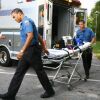A question posted recently on Quora asked “How useful is the medical history of a person during medical emergencies?” Former paramedic Anderson Moorer gave his opinion on the topic. Read his response, and add your own to the comments.
It’s extremely useful. It may point to the underlying cause of the symptoms visible to the medical responders; it may warn them of potential complications which informs their decisions on emergency treatment.
For instance, a young patient with difficulty breathing and cystic fibrosis may look like a young patient with asthma, or pneumonia, or a panic attack. But the cystic fibrosis patient is in great danger: the medic may decide to opt for more rapid transport where they might otherwise administer albuterol and observe its effect.
A patient in seizures who has a history of alcoholism will be treated differently from a seizing patient who suffered recent head trauma, or a patient with a history of epilepsy, or a patient who is taking blood thinners.
Similarly, the medications a patient is on matter. A man who is on painkillers and has chest pain may be harmed by the usual field treatment of administering morphine.
And allergies are obvious ... If a patient is allergic to a medication you administer, you can kill them outright.
Infectious disease is also important information. If medics know a patient has HIV or tuberculosis they can limit exposure to themselves, bystanders, and staff in the ER.
A final note: a product or service like you mention has another important role: obtaining this information in the field takes time. A medic not only has to gather the information, look over the patient’s medications, and write it all down, but the time they spend doing so is time they can use in treatment, setting up IV lines, examining the patient etc.
Pre-hospital care requires as much efficiency as possible because manpower is limited and time is short. Making all relevant information available immediately absolutely will save lives, as well as shorten time on scene enabling a smaller force to cover more incidents.
I should add that medics don’t need lengthy detailed histories, but an up-to-date overview of the patient’s significant history, medications and allergies. A paragraph of more relevant and recent information is worth much more than a comprehensive chart nobody has time to read over.












